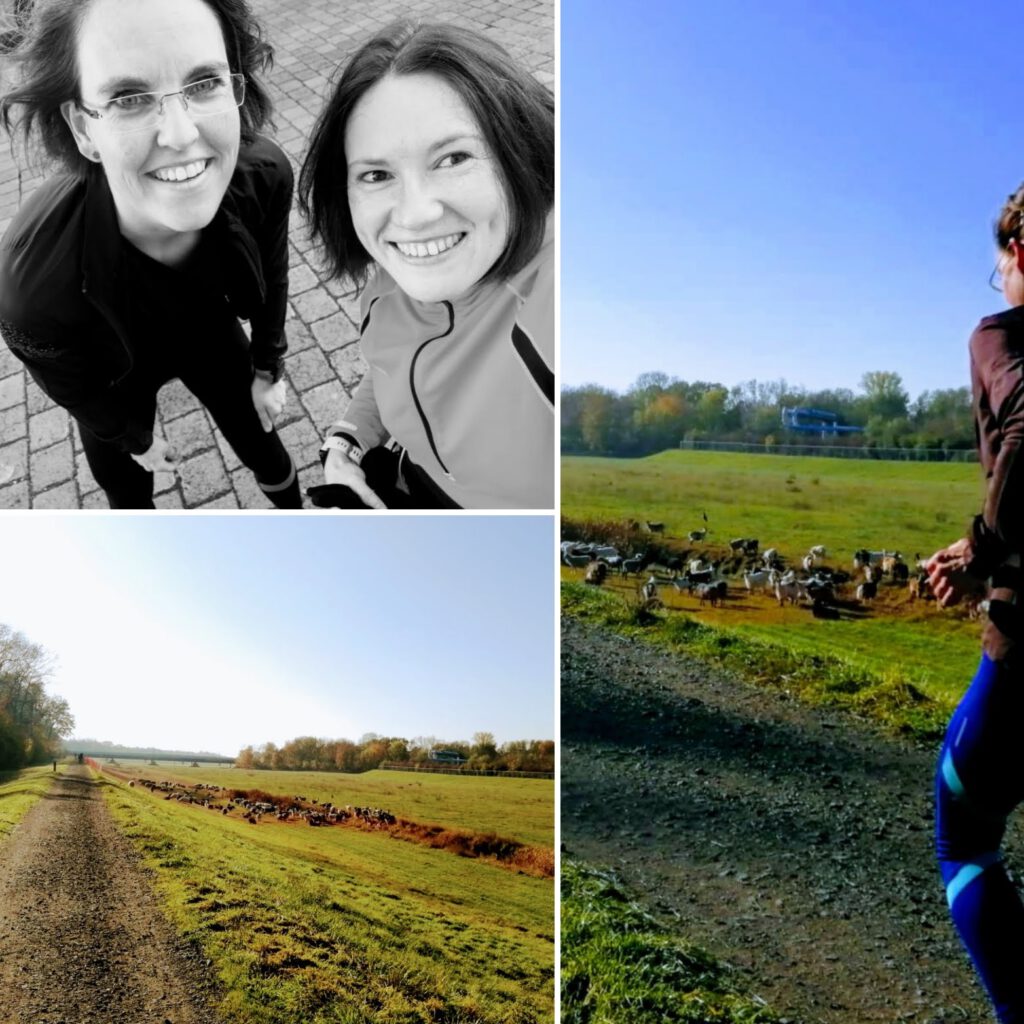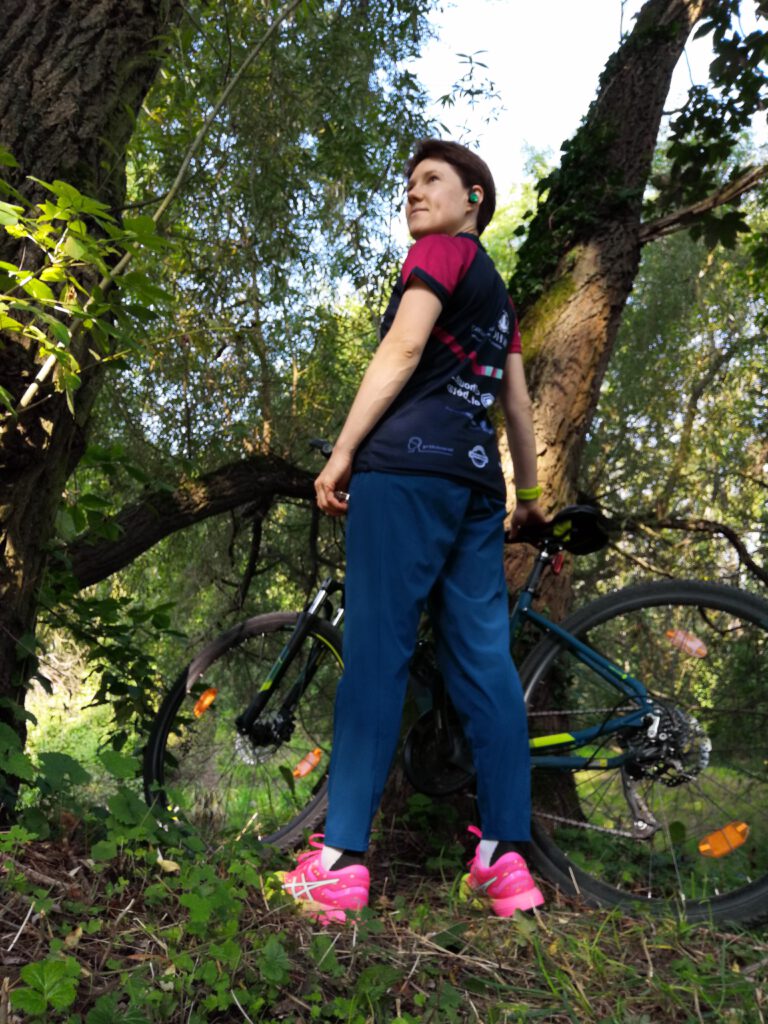I met Angelique in Leipzig in 2012 – in fact, we just occasionally met each other at lunch breaks: Angelique worked on her PhD in a different unit of the institute that time. Next year she joined our group, and we chatted more often, especially because we both only started learning German and simply needed a more relaxed and fluent conversation in English from now and then.
Probably our friendship grew from there – but maybe we just enjoyed the feeling of having a friend with whom you can relax and be yourself. Having nice talks or not talking at all when we don’t feel like. Organizing an activity together – or simply reading a book each in her own corner. Being good in something and poor in other things. And sometimes trying to change the latter.
- Why don’t you run intervals? – asked me Angelique a few years ago as I mentioned that I started running more consistently.
- I hate intervals! – was my genuine reply, because I didn’t see why one should push himself so hard that it hurts.
- But they make you faster, – said Angelique.
I was about to say that I don’t want to be faster. But I shut my mouth: in that moment I realized that it might not be true.
“That behind the words “not a good day” can be something different than not a good day for another person.”

It took me a couple of years until I was ready to try; but during that time, I was coming back to our conversation again and again: What will happen if you really focus on your (sports) aim and try pushing your limits? I am not an athlete: will it work for me too? I was intrigued by this idea.
Throughout all these years I was watching Angelique doing this: reaching her aims. Not always in a shortest way. Not always by only pushing. But following her way – and adjusting the route when it was necessary. Sometimes it was about sports, and sometimes it was about something else.
Yet there are some things that one cannot control or re-write, regardless of how desperately you want it. Brain injury is one of them. One thing stays the same: I haven’t seen an injury that would stop Angelique from living life at its fullest, with ups and downs. Making difficult physical, psychological and mental situations a part of life, but not an insurmountable obstacle. But also, even now, I haven’t really seen what it takes.
I am so used to watch Angelique being tough in sports that I always took it as given that she can cope with any issues, struggles and injuries. And I still firmly believe in that! Yet now I understand a bit better (I think; at least I try to) how hard it can be. That behind the words “not a good day” can be something different than not a good day for another person.
For me supporting the Klaverblat Tocht is not just supporting a friend. It’s about remembering and reminding that people’s lives are more than pictures on Instagram; that we might not even guess what struggles one passes through right now – but at the same time, that one always can find a way to get the most of his life, to set goals and to reach them. Sometimes it’s just easier with some support. Making some invisible aspects of the brain injuries visible would give more support to quite a number of people: that’s a goal worth pursuing. And since our conversation a few years ago I can definitely say that focusing on a goal brings results. Even if you are not an athlete 🙂
